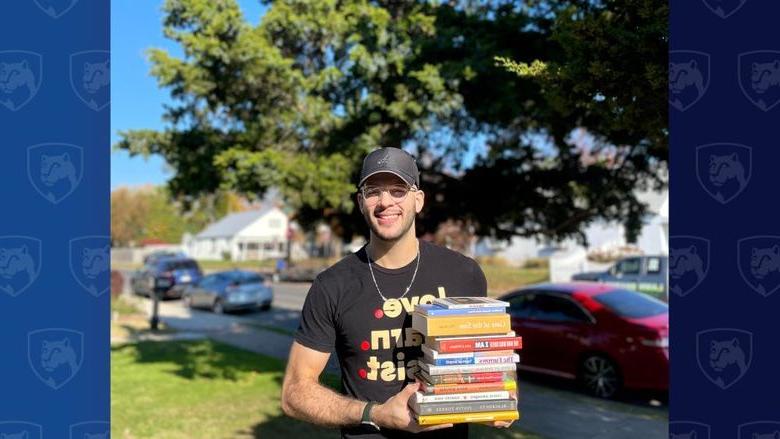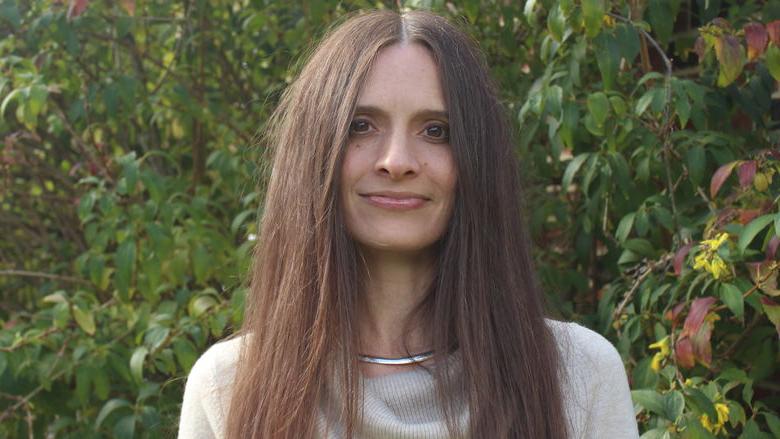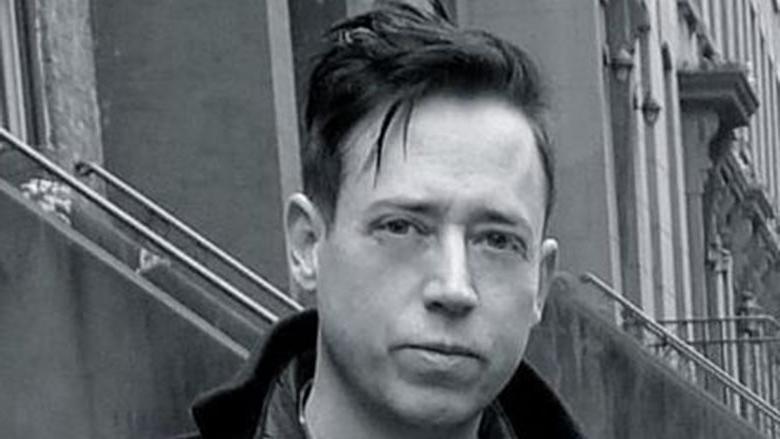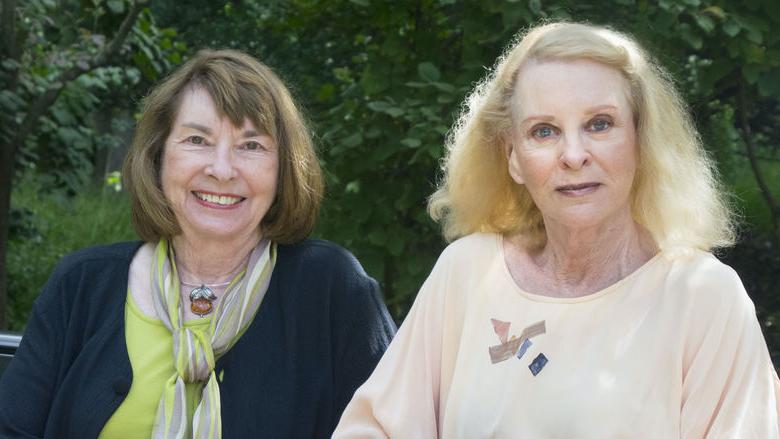Fall 2023 Course Descriptions
English Program and Writing Program
Penn State Abington
English Major (Writing and Literature in Context) Requirements:
- ENGL 200 or 201: ENGL 201
- Pre-1800: ENGL 455
- Post-1800: ENGL 401, ENGL 435
- Literature, Writing, or Rhetoric: ENGL 050, ENGL 140H, ENGL 184, ENGL 201, ENGL 212, ENGL 215, ENGL 221W, ENGL 222, ENGL 223N, ENGL 401, ENGL 412, ENGL 415, ENGL 435, ENGL 487W
- Diversity: ENGL 401, ENGL 455
- Senior Seminar: ENGL 487W
Writing Minor Courses: ENGL 050, ENGL 212, ENGL 215, ENGL 412, ENGL 415, ENGL 420
English Minor Courses: ENGL 050, ENGL 140H, ENGL 184, ENGL 201, ENGL 212, ENGL 215, ENGL 221W, ENGL 222, ENGL 223N, ENGL 401, ENGL 412, ENGL 415, ENGL 420, ENGL 455, ENGL 487W
ENGL 050: Introduction of Creative Writing
Professor Pack
In our Introduction to Creative Writing class we will explore our artistic sides by playing with language, plot, history, and character through the genres of fiction, creative nonfiction, script writing, and poetry. Two concepts to keep in mind while you work on your writing: that writing is mostly the act of revision, and that all writers start out by imitating those writers they love the most. You will be given ample time to revise your work. We’ll spend a quarter of our class time reading the work of established writers (Toni Morrison, Flannery O’Connor, James Baldwin, Raymond Carver, John Keats, Anne Sexton, Bryan Washington, Thomas McGuane, Zora Neale Hurston, Ray Bradbury, Lynn Venable, Carol Amen, and Paul Thomas Anderson, among others), and the remainder of class time in a workshop environment where students submit their work to a class critique. Our workshops will be run in a civil, encouraging manner meant to assist each writer with revising their works. We will all be working as a team to create publishable works of art. Fiction created for this class will be submitted to Penn State Abington’s literary and arts magazine The Abington Review for publication in the 2024 edition of the magazine.
ENGL 140H: Contemporary Literature
Professor Naydan
ENGL 140 is an Honors survey course that invites students to study contemporary literature, which we will define as literature written within the last twenty to thirty years. To ground our consideration of this period, we’ll focus on texts written by American authors and by authors from other nations who have written about US culture and historical events such as the terrorist attacks of 9/11, #MeToo, and the Black Lives Matter movement. Authors will likely include Alison Bechdel, Don DeLillo, Mohsin Hamid, Jhumpa Lahiri, Claudia Rankine, Kristen Roupenian, Gary Shteyngart, and Zadie Smith. Through reading, discussing, and writing about contemporary authors, we’ll familiarize ourselves with aesthetic and rhetorical features of novels, novellas, short stories, poems, essays, and multi-genre texts that prioritize the interplay of image and text. We’ll also develop an understanding of pressing issues that have come to define our turbulent contemporary times, for example those involving race, class, gender, sexuality, nationality, faith, terror, xenophobia, digitization, and globalization.
ENGL 184: The Short Story
Professor Miller
Throughout time people have told stories in order to comprehend themselves and their history, or simply for the pure joy of recreating mutually felt human experiences. Such storytelling began within an oral tradition and then assumed a written literary form. Edgar Allan Poe (an American writer during the early 19th century) was probably the first to define the short story as its own literary genre, and stories written since Poe’s time might be judged by his succinct definition. A tale should be short enough to read in one sitting, he said, and be artfully structured so as to create a unified impression. This class will consider the major short story writers of the 19th and 20th centuries, with a primary focus on those 20th-century writers (many of them American) who have been the most influential in shaping this genre. We will consider the historical and cultural contexts for these stories while primarily analyzing them on their own artistic terms. What do these stories have to say about what it means to be human, and HOW do they go about saying it? The sophisticated textual critic will consider all facets of each story’s structural form in order to determine its predominant themes. Lectures and class discussions will assist students in developing their reading and interpretive skills, and students will be graded on their ability to communicate these interpretations both orally and in writing.
ENGL 201: What is Literature
Professor Rigilano
What is literature? Is it an objective category to which all writing with verifiably “literary” quality belongs? If so, in what does the “literary” consist? Or is it rather that literature names an ideological category that serves the interests of power? Or perhaps literature is the name we give to writing that produces a particular aesthetic experience in the reader? In asking these questions — and many more — this course seeks to introduce students to key concepts in literary theory and literary history. Students will engage with a wide variety of texts and genres, from ancient tragedy to conceptual poetry.
ENGL 212: Introduction to Fiction Writing
Professor Pack
Our ENGL 212 class will explore the writing of fiction in two forms— the short-short and the short story. Students will peer review one another’s writing in a workshop environment where feedback will offer close readings of narrative in a safe, equitable environment that nurtures talent and creativity. Students will supplement their own creative works by reading established American writers from the early 20th Century to our current time. Fiction created for this class will be submitted to Penn State Abington’s literary and arts magazine The Abington Review for publication in the 2024 edition of the magazine.
ENGL 215: Introduction to Article Writing
Professor Cohen
Share your perspectives on campus and community issues! In this course, you will research, compose, edit, and publish articles for our digital news outlet The Abington Sun.
Students in ENGL 215 will be expected to conduct primary research--conducting interviews and analyzing data, in order to generate ideas for stories of interest to our campus community. Students will pitch their story ideas weekly to an audience of their peers, and decide collectively with editors which stories will move forward.
Over the course of the semester, each student should plan to produce and publish several news articles and feature pieces, improving writing skills in a hands-on process as they work to publish well-researched, impactful articles. Subjects for articles range from politics to current events, sports and arts and culture. Feel free to browse past topics at The Abington Sun.
If you like to write, are interested in learning and writing about current events, and want to see your work published, ENGL 215/415 is the place for you! If you haven’t worked with us before, you should enroll in ENGL 215. If you’re a veteran of our writing staff who wants to further hone your skills, you should register for ENGL 415.
ENGL 221W: British Literature to 1798
Professor Nicosia
In 1492 Christopher Columbus, and his European shipmates, arrived on the shores of the Americas. 1492 also often marks the divide between the medieval era and the Renaissance as distinct literary and historical periods. However, medieval, Renaissance, and eighteenth-century authors alike depicted the known world, documented global exploration, and imagined possible places. In this course, we will read accounts of real and imaginary places described in English and American literature from the premodern era (beginnings to 1800) by authors such as Marie de France, Aphra Behn, Anne Bradstreet, Thomas More, Phillis Wheatley, Margaret Cavendish, John Donne, and John Milton, as well as anonymous texts by indigenous authors. Class discussions and assignments will address histories of race and colonialism, issues of gender and authorship, and utopian studies that emerge from our readings. We will use free, online textbooks for this class and the final project for the course will invite students to remix and augment these online resources for future students enrolled in the course. This course is “stacked.” Students can enroll in this course at an introductory level (ENGL 221W, which also fulfills a writing-intensive requirement) or at an advanced level (ENGL 455).
English 222: British Literature from 1798
Professor Walters
In this course, we will read literature written from the late-Romantic Period to the present day. This broad time period encompasses radical eras in British history! We begin in the traumatic aftermath of the French and Haitian revolutions, dramatic events that send international shock waves. We will also read texts grappling with the unprecedented industrial revolution and the violent expansion of the British Empire. Throughout this course, we will gain an appreciation of the important historical and cultural contexts that shaped the creation of important cultural documents. We will examine many genres of literature, including poems, plays, novels, essays, and journals, and we will discuss these texts as both the products and producers of culture at large. Given this, our readings will be framed by a series of recurring questions in this course. We will ask what, precisely, is considered “literature” at a given historical moment—and why? We also will consider how literature attempts to narrate individual and collective subjectivities—like that of the self, or the nation. Other related issues that we will examine in this class include the ascendance of the novel form, the role of the writer, the rise of the female author, and the growth of the British Empire.
English 223N: Shakespeare: Page, Stage, and Screen
Professor Nicosia
“He was not of an age but for all time!” Ben Jonson, a poet and playwright, wrote these words to celebrate the life and work of William Shakespeare. This course is designed to introduce students to Shakespeare and his world. Students of all levels are welcome and no prior experience is required or assumed. We will read six of Shakespeare’s plays, including some of his most celebrated. As we read these plays, we will analyze their genre, dramatic structure, and language as well as how they engage with social and political issues of Shakespeare’s time and our own. We will consider issues of performance, film adaptation, and publication history through interactive assignments.
English 401: Studies in Genre: Genre Play in Twenty-first Century Literature
Professor Naydan
What happens when a work of fiction is also a self-help book, when a novel is also a play, or when an essay is also a questionnaire? How do the lines that divide literary forms and forms in general speak to the political and social lines that divide humans from one another in twenty-first century life? This course explores the ways in which American authors and authors writing about the U.S. leverage, mesh, and otherwise engage in literary play with genres in their works of contemporary U.S. literature. Authors will likely include Alison Bechdel, Octavia Butler, Mohsin Hamid, Valeria Luiselli, Ling Ma, E.C. Osondu, Claudia Rankine, and Gary Shteyngart. Through reading, discussing, and writing about these authors’ works, we’ll familiarize ourselves with the aesthetics, rhetoric, and politics of genre play. We’ll also develop an understanding of pressing issues involving race, class, gender, sexuality, nationality, faith, and other identities that are subject to categorization in ways that are evocative of the categories that the corporate market, writers, and readers may impose on literary texts. Note: This course fills the Diversity requirement and the post-1800 literature requirement. Also, this course cannot be taken concurrently with Professor Naydan’s Fall 2023 ENGL 487W section.
English 412: Advanced Fiction Writing
Professor Pack
Our ENGL 412 class will explore the writing of fiction in two forms— the short-short and the short story. Students will peer review one another’s writing in a workshop environment where feedback will offer close readings of narrative in a safe, equitable environment that nurtures talent and creativity. Students will supplement their own creative works by reading established American writers from the early 20th Century to our current time. Fiction created for this class will be submitted to Penn State Abington’s literary and arts magazine The Abington Review for publication in the 2024 edition of the magazine.
English 415: Advanced Nonfiction Writing
Professor Cohen
Share your perspectives on campus and community issues! In this course, you will research, compose, edit, and publish articles for our digital news outlet The Abington Sun.
Students in ENGL 415 will build on the skills they learned in ENGL 215 to conduct primary research--conducting interviews and analyzing data, in order to generate ideas for stories of interest to our campus community. Students will pitch their story ideas weekly to an audience of their peers, and decide collectively with editors which stories will move forward.
Over the course of the semester, each student should plan to produce and publish several news articles and feature pieces, improving writing skills in a hands-on process as they work to publish well-researched, impactful articles. Subjects for articles range from politics to current events, sports and arts and culture. Feel free to browse past topics at The Abington Sun.
If you like to write, are interested in learning and writing about current events, and want to see your work published, ENGL 215/415 is the place for you! If you haven’t worked with us before, you should enroll in ENGL 215. If you’re a veteran of our writing staff who wants to further hone your skills, you should register for ENGL 415.
English 420: Writing for the Web
Professor Rigilano
Most of what we write is mediated by digital technology, and much of what we read is on a screen, but we rarely reflect on how these contexts impact our lives as writers and readers. In this class, we will not only critically reflect on these conditions and processes, but we will actively and creatively construct texts designed to succeed in online environments. By engaging with scholarship in media theory and digital rhetoric, students will be better able to navigate and interpret the virtual texts. By writing for various web platforms, in a variety of genres, and for various audiences, students will gain practical expertise in digital composition. Writing in 21st - century digital contexts is necessarily multimodal, so students will consider not just written language, but also images, video, and audio. Major assignments may include: a social media ethnography, a web magazine article, a professional website, a review blog/podcast, and an explainer video.
English 435: The American Short Story
Professor Miller
Throughout time people have told stories in order to comprehend themselves and their history, or simply for the pure joy of recreating mutually felt human experiences. Such storytelling began within an oral tradition and then assumed a written literary form. Edgar Allan Poe (an American writer during the early 19th century) was probably the first to define the short story as its own literary genre, and stories written since Poe’s time might be judged by his succinct definition. A tale should be short enough to read in one sitting, he said, and be artfully structured so as to create a unified impression. This class will consider the major short story writers of the 19th and 20th centuries, with a primary focus on those 20th-century writers (many of them American) who have been the most influential in shaping this genre. We will consider the historical and cultural contexts for these stories while primarily analyzing them on their own artistic terms. What do these stories have to say about what it means to be human, and HOW do they go about saying it? The sophisticated textual critic will consider all facets of each story’s structural form in order to determine its predominant themes. Lectures and class discussions will assist students in developing their reading and interpretive skills, and students will be graded on their ability to communicate these interpretations both orally and in writing.
English 455: Topics in British Literature: Premodern Worlds
Professor Nicosia
In 1492 Christopher Columbus, and his European shipmates, arrived on the shores of the Americas. 1492 also often marks the divide between the medieval era and the Renaissance as distinct literary and historical periods. However, medieval, Renaissance, and eighteenth-century authors alike depicted the known world, documented global exploration, and imagined possible places. In this course, we will read accounts of real and imaginary places described in English and American literature from the premodern era (beginnings to 1800) by authors such as Marie de France, Aphra Behn, Anne Bradstreet, Thomas More, Phillis Wheatley, Margaret Cavendish, John Donne, and John Milton, as well as anonymous texts by indigenous authors. Class discussions and assignments will address histories of race and colonialism, issues of gender and authorship, and utopian studies that emerge from our readings. We will use free, online textbooks for this class and the final project for the course will invite students to remix and augment these online resources for future students enrolled in the course. This course is “stacked.” Students can enroll in this course at an introductory level (ENGL 221W) or at an advanced level ENGL 455. Students enrolled in ENGL 455 will read and deliver presentations on articles and book chapters written by literary critics and historians. ENGL 455 fulfills the diversity requirement and the “Pre-1800” requirement.
English 487W: Senior Seminar: Genre Play in Twenty-first Century Literature
Professor Naydan
What happens when a work of fiction is also a self-help book, when a novel is also a play, or when an essay is also a questionnaire? How do the lines that divide literary forms and forms in general speak to the political and social lines that divide humans from one another in twenty-first century life? This course explores the ways in which American authors and authors writing about the U.S. leverage, mesh, and otherwise engage in literary play with genres in their works of contemporary U.S. literature. Authors will likely include Alison Bechdel, Octavia Butler, Mohsin Hamid, Valeria Luiselli, Ling Ma, E.C. Osondu, Claudia Rankine, and Gary Shteyngart. Through reading, discussing, and writing about these authors’ works, we’ll familiarize ourselves with the aesthetics, rhetoric, and politics of genre play. We’ll also develop an understanding of pressing issues involving race, class, gender, sexuality, nationality, faith, and other identities that are subject to categorization in ways that are evocative of the categories that the corporate market, writers, and readers may impose on literary texts. Note: This course cannot be taken concurrently with Professor Naydan’s Fall 2023 ENGL 401 section.





